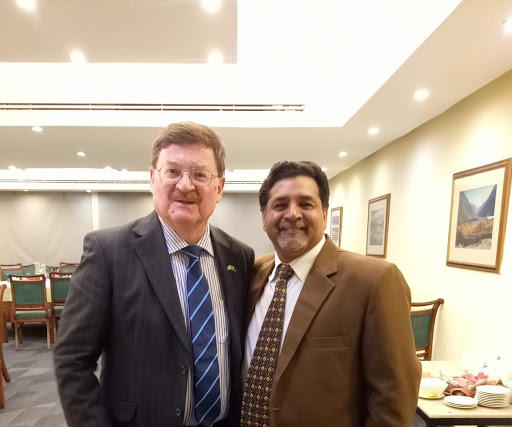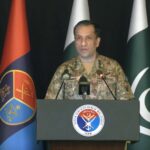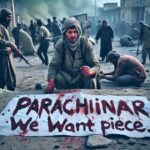By Agha Iqrar Haroon
ISLAMABAD, Pakistan: “Russia believes in developing comprehensive bilateral relations with Pakistan and political parties present in both houses of Russian Parliament consider Pakistan as a long lasting and trustworthy partner”.
This was expressed by Dr. Vladimir Kozin (Владимир Козин), who is the leading expert at the Center for Military and Political Studies at the Moscow State Institute of International Relations of the Russian Ministry of Foreign Affairs during his interview with Agha Iqrar Haroon of Dispatch News Desk (DND) News Agency.
Interview of Dr. Vladimir Kozin in Russian language can be listen to click this link.

Here under are important points of his interview:
What do you think about the role of Pakistan in the fight against terrorism?
Vladimir Kozin: Pakistan deserves special gratitude in the fight against terrorism by how much, according to the data that I possess, thanks to the efforts of Pakistan in this struggle, the number of terrorists in your country has decreased by two-thirds, about 60%—. It is a very good sign. Moscow very much appreciates the participation of Pakistan in the anti-terrorist struggle. This year, as far as I know, we will conduct (Russia and Pakistan) special exercises to counter terrorism. As you know, this (Terrorism) is an evil that does not know the territorial borders and special conditions have been created in your (Pakistan) country to combat terrorism. Pakistan unfortunately has lost a lot of good people, absolutely innocent of anything, among them elderly people and children. Mass explosions took place in bazaars and crowded places. Such blasts had widespread condemnation in our (Russia) country. Therefore, Russians are ready to cooperate with Pakistan in the broad fight against terrorism, if possible, to exchange relevant information in order to fight terrorism in our countries first and to fight terrorism with political and diplomatic means in the international arena in various forums and at meetings of the UN organization to raise this issue and criticize those states that unfortunately still finance terrorism, supply terrorist groups with weapons, ammunition, money and even chemical weapons. Against this evil, we need to fight together.
Do you think that the world will come to Afghanistan?
Vladimir Kozin: I think the future of Afghanistan should be built only by the hands of the Afghans themselves. We remember from a distant and deep history how the Afghans won victories in three wars with the British conquerors. Therefore, no state should interfere in the internal affairs of Afghanistan. Afghanistan historically played a big role in pursuing a policy of active neutrality and was part of the movement of the non-aligned countries therefore did not adhere to any blocs or alliances.
I think that the Afghan people are hardworking, very hospitable, very literate; and believe that foreign troops must leave Afghanistan forever. This concerns, above all, the United States and its NATO allies or other partner countries that are not part of this trans-Atlantic alliance. As for the economic assistance to Afghanistan, I will say straightforwardly that since there are American and NATO troops there, it will be very difficult to provide effective and useful assistance to Afghanistan in the economic sphere, in education, in healthcare. Due to grave circumstances in Afghanistan, no economic contacts and cooperation will work to reach positive impact in regional economy.
What are the main points of Russia’s foreign policy towards Pakistan?
Vladimir Kozin: In our country there is a wide national consensus, which is aimed at developing comprehensive relations with the Islamic Republic of Pakistan. All our parties, which are represented in the parliament in the upper and lower house, they also think so. We do not have any contradictions, no problems: neither economic nor political. We, are ready to develop our relations widely, thoroughly and in depth.
Reference: Dr. Vladimir Kozin is a leading expert at the Center for Military and Political Studies at the Moscow State Institute of International Relations of the Russian Ministry of Foreign Affairs.





